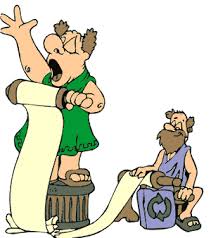
记忆方法
记忆“patrician”这个单词,可以通过联想其词根“patr-”和“-ician”,分别代表“父亲”和“...的”,组合起来可以想象为“父亲的阶级”,即罗马社会的贵族阶层。或者,可以将“patrician”与“patent”和“patentee”联系起来,这三个词都与权利、专利有关,而“patrician”通常指有特权的贵族,这样可以加强记忆。
以上内容由AI生成, 仅供参考和借鉴
中文词源
patrician 贵族的,上流社会的
来自拉丁语patricius,像父亲的,高贵的,贵族的,来自pater,父亲,词源同father.引申词义上流社会的。
英语词源
- patrician
-
patrician: see patron
- patrician (n.)
- early 15c., "member of the ancient Roman noble order," from Middle French patricien, from Latin patricius "of the rank of the nobles, of the senators; of fatherly dignity," from patres conscripti "Roman senators," literally "fathers," plural of pater "father" (see father (n.)). Contrasted, in ancient Rome, with plebeius. Applied to noble citizens and higher orders of free folk in medieval Italian and German cities (sense attested in English from 1610s); hence "nobleman, aristocrat" in a modern sense (1630s). As an adjective, attested from 1610s, from the noun.
权威例句
- 1. He was a lean, patrician gent in his early sixties.
- 他60岁出头,是位有着贵族气派的清瘦绅士。
- 2. The old patrician was buried in the family vault.
- 这位老贵族埋在家族的墓地里.
- 3. But in practice Geneva was a patrician gerontocracy, dominated by a few families.
- 但日内瓦事实上是贵族的老龄政府,由一小部分家庭控制的。
- 4. Its patrician dignity was a picturesque sham.
- 它的贵族的尊严只是一套华丽的伪装.
- 5. He was reticent, patrician, bookish, urbane.
- 他沉默含蓄, 雍容华贵, 书生气十足,而又温文有礼.
